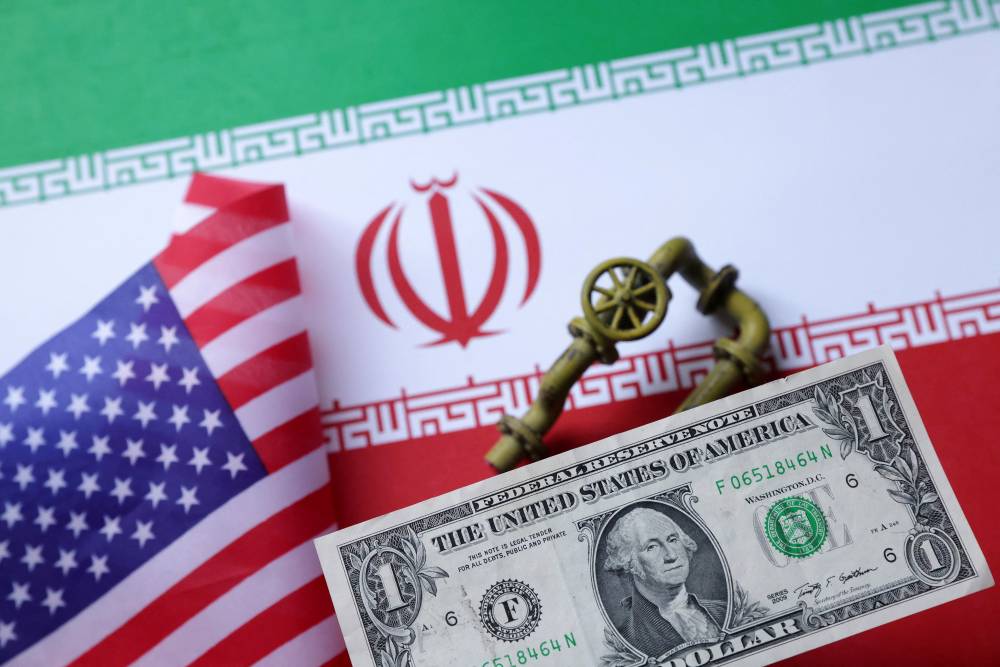Investors brace for oil price spike after America bombs Iran

NEW YORK—The US attack on Iranian nuclear sites could lead to a knee-jerk reaction in global markets when they reopen on Monday, sending oil prices higher and triggering a rush to safety, investors said, as they assessed how the latest escalation of tensions would ripple through the global economy.
The attack, which was announced by President Donald Trump on social media site Truth Social, deepens US involvement in the Middle East conflict. That was the question going into the weekend, when investors were mulling a host of different market scenarios.
In the immediate aftermath of the announcement, they expected the US involvement was likely to cause a sell-off in equities and a possible bid for the dollar and other safe-haven assets when trading begins, but also said much uncertainty about the course of the conflict remained.
Trump called the attack “a spectacular military success” in a televised address to the nation and said Iran’s “key nuclear enrichment facilities have been completely and totally obliterated.”
He said the US military could go after other targets in Iran if the country did not agree to peace.
“I think the markets are going to be initially alarmed, and I think oil will open higher,” said Mark Spindel, chief investment officer at Potomac River Capital.
“We don’t have any damage assessment and that will take some time. Even though he has described this as ‘done,’ we’re engaged. What comes next?” Spindel said.
“I think the uncertainty is going to blanket the markets, as now Americans everywhere are going to be exposed. It’s going to raise uncertainty and volatility, particularly in oil,” he added.
Spindel, however, said there was time to digest the news before markets open and said he was making arrangements to talk to other market participants.
A key concern for markets would center around the potential impact of the developments in the Middle East on oil prices and thus on inflation. A rise in inflation could dampen consumer confidence and lessen the chance of near-term interest rate cuts.
Complicated layer
“This adds a complicated new layer of risk that we’ll have to consider and pay attention to,” said Jack Ablin, chief investment officer of Cresset Capital. “This is definitely going to have an impact on energy prices and potentially on inflation as well.”
While global benchmark Brent crude futures have risen as much as 18 percent since June 10, hitting a near five-month high of $79.04 on Thursday, the S&P 500 has been little changed, following an initial drop when Israel launched its attacks on Iran on June 13.
Before the US attack on Saturday, analysts at Oxford Economics modeled three scenarios, including a deescalation of the conflict, a complete shutdown in Iranian oil production and a closure of the Strait of Hormuz, “each with increasingly large impacts on global oil prices.”
In the most severe case, global oil prices jump to around $130 per barrel, driving US inflation near 6 percent by the end of this year, Oxford said in the note.
“Although the price shock inevitably dampens consumer spending because of the hit to real incomes, the scale of the rise in inflation and concerns about the potential for second-round inflation effects likely ruin any chance of rate cuts in the United States this year,” Oxford said in the note, which was published before the US strikes.
Economists warn that a dramatic rise in oil prices could damage a global economy already strained by Trump’s tariffs.
Still, any pullback in equities might be fleeting, history suggests. During past prominent instances of Middle East tensions coming to a boil, including the 2003 Iraq invasion and the 2019 attacks on Saudi oil facilities, stocks initially languished but soon recovered to trade higher in the months ahead.
Reuters, the news and media division of Thomson Reuters, is the world’s largest multimedia news provider, reaching billions of people worldwide every day. Reuters provides business, financial, national and international news to professionals via desktop terminals, the world's media organizations, industry events and directly to consumers.

















